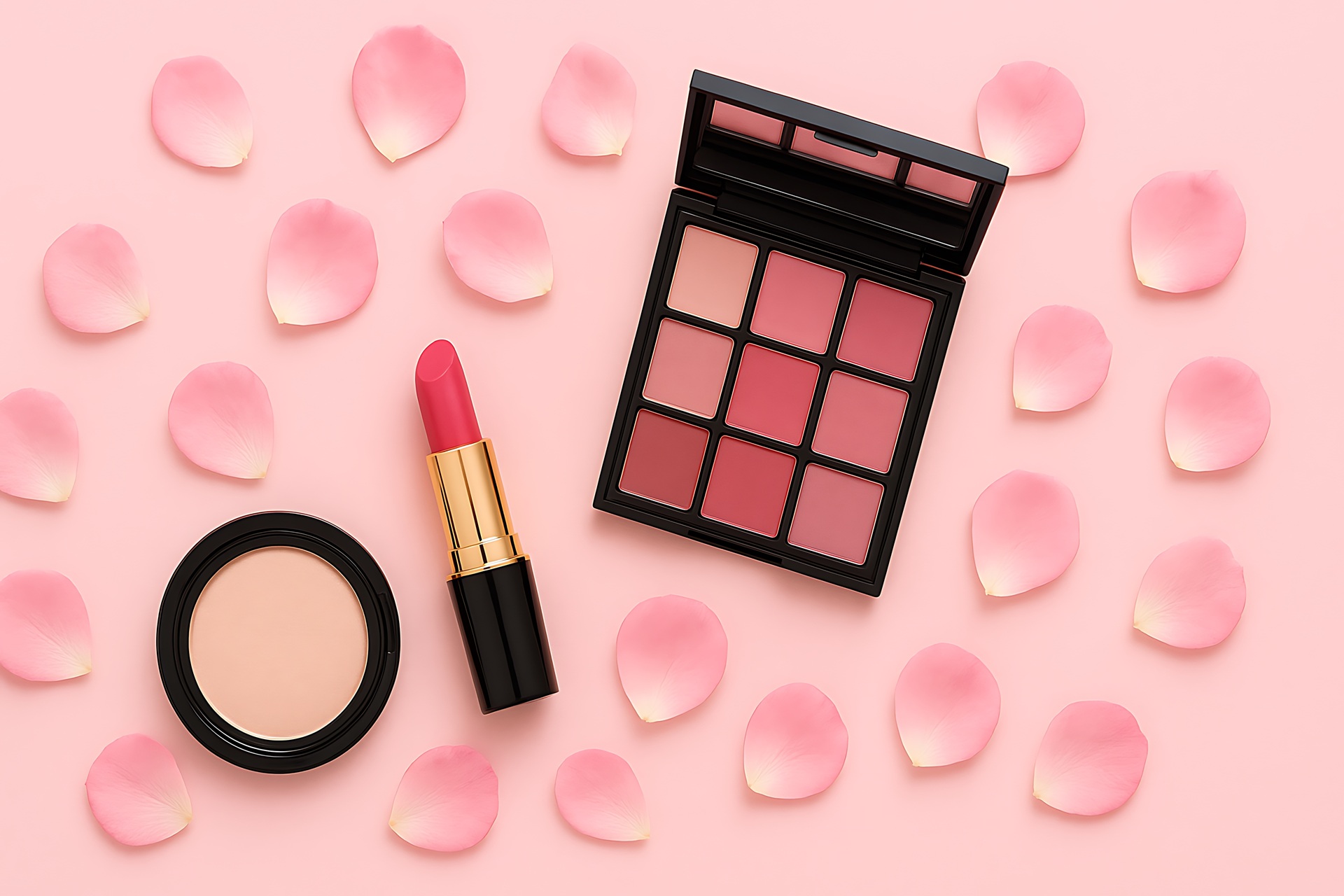TL;DR: Germany is Europe’s largest beauty market, valued at over $22 billion in 2025. The best marketplaces for third-party beauty sellers in Germany are Amazon.de (mass-market volume), Douglas (prestige beauty), OTTO Marketplace (premium mid-market), Zalando (trend-driven youth), Kaufland.de (value-driven), and Flaconi (niche skincare). All sellers must comply with EU Cosmetics Regulation (EC) No 1223/2009, appoint an EU Responsible Person, and meet the General Product Safety Regulation (GPSR) requirements that took effect in December 2024. eDesk integrates with Amazon, Kaufland, Douglas, and 250+ channels to centralize customer support across all your German marketplace accounts.
We spend a lot of time working with beauty sellers who expand into Germany, and one question comes up more than any other: which marketplace should you sell on first?
The answer depends on your brand positioning, your pricing, and how prepared you are for strict EU compliance rules. Germany rewards sellers who do the work. Shoppers here expect German-language listings, fast delivery, and full regulatory documentation. Cut corners on compliance, and your listings get pulled. Sell on the right platform with the right setup, and you tap into the largest beauty and personal care market in Europe.
This guide breaks down the six best third-party marketplaces for beauty products in Germany, covers the EU compliance requirements you need to know, and helps you pick the right platform for your specific goals.
What makes Germany’s beauty market different?
Germany’s beauty and personal care market was valued at approximately $22.43 billion in 2025 and is projected to reach $28.30 billion by 2030, growing at a CAGR of 4.76%. The German cosmetics retail sector alone generates an estimated €24.4 billion in annual revenue, making Germany the highest-turnover cosmetics market in Europe, according to IBISWorld.
German consumers take product quality seriously. They expect full ingredient transparency, German-language labeling, and sustainable packaging. According to the Center for the Promotion of Imports (CBI), 70% of German consumers incorporated sustainability considerations into their cosmetics purchases as of 2023.
The marketplace ecosystem is led by global giants like Amazon, but also features powerful local players that dominate specific retail categories. For beauty sellers, this means your channel strategy matters as much as your product.
What are the best marketplaces to sell beauty products in Germany?
1. Amazon Germany (Amazon.de)
Amazon is the dominant force in German eCommerce. Amazon.de receives over 500 million site visits per month, according to Semrush data from late 2025. Its scale makes it essential for any brand seeking maximum volume and visibility in Germany.
Best for: Mass-market cosmetics, high-volume consumables, and beauty tools. Amazon’s Fulfillment by Amazon (FBA) service is critical for meeting German customer expectations around fast shipping. The referral fee for beauty products is typically 12% of the sale price.
Key consideration: Sellers must comply fully with EU Cosmetics Regulations, including appointing an EU “Responsible Person” and ensuring all labeling is in German. Amazon enforces these requirements strictly and will suspend listings that fall short.
eDesk integrates directly with Amazon so you never miss a customer message or risk your seller rating.
2. OTTO Marketplace (otto.de)
OTTO is Germany’s second-largest eCommerce platform. The marketplace attracts over 3 million qualified visits per day (over 90 million per month) and serves 12.4 million active customers. OTTO’s GMV grew 9% in its 2024/2025 fiscal year, reaching €7 billion. This is a curated marketplace focused on premium, mid-market assortments.
Best for: Branded, mid-to-high-end beauty and skincare products. OTTO customers value brand quality and trust. Entry requires a monthly fee (currently around €99.90/month) plus a category-specific commission.
Key consideration: OTTO has a high-quality bar for listings and operations. They review every seller application and have removed underperforming partners to maintain quality. The platform also promotes sustainable products, which gives eco-conscious beauty brands a built-in advantage.
3. Douglas Online (douglas.de)
Douglas is the leading specialty beauty retailer in Germany, attracting over 4.3 million monthly visits to its website. Douglas operates its own marketplace model alongside its retail business. For beauty sellers, this is the highest-intent audience you will find on any German marketplace.
Best for: Prestige beauty, niche luxury fragrances, and high-end skincare. Shoppers visit Douglas specifically to buy beauty products. Customer trust on this platform is extremely high.
Key consideration: The marketplace model is curated and often structured as a direct partnership or vendor agreement. You need a strong brand identity and premium quality standards to get access. Commission rates are higher than generalist marketplaces, reflecting the niche, high-value audience.
eDesk connects with Douglas to bring your customer messages into one shared inbox.
4. Zalando (Partner Program)
Zalando is Europe’s largest fashion and lifestyle platform. Its German site (zalando.de) receives roughly 25 to 30 million visits per month, and the platform operates across 25 European markets with 52.4 million active customers as of Q1 2025. Since 2018, Zalando has expanded its beauty category through its Partner Program (the 3P model).
Best for: Trend-driven beauty, color cosmetics, and products with strong fashion synergy. Zalando attracts a young, social-media-aware demographic, with the 25 to 34 age group representing its largest visitor segment. Commission structures for the Partner Program generally range from 5% to 25% depending on category, price, and services used.
Key consideration: Success relies heavily on high-quality visuals and engaging content. Zalando offers its own fulfillment solutions (ZFS) but also allows partners to use their own logistics.
5. Kaufland.de Global Marketplace
Kaufland.de (formerly Real.de) is a generalist marketplace with growing reach, attracting approximately 20 million monthly visitors in Germany. As part of the larger Schwarz Group (which also owns Lidl), Kaufland has significant brand recognition among German shoppers.
Best for: Mass-market toiletries, personal care tools, and value-driven products. Kaufland attracts a price-conscious audience. Commission rates are competitive across categories, making this an attractive secondary channel for sellers with broad inventory.
Key consideration: As a generalist marketplace, you need to work harder to make your beauty products stand out against general home goods and electronics listings.
eDesk supports Kaufland integration, letting you manage Kaufland customer messages alongside your other channels.
6. Flaconi (Partner Program)
Flaconi is a major pure-play beauty retailer in Germany, attracting over 3.7 million monthly visits. Like Douglas, Flaconi focuses on retail first but offers structured Partner Programs for selected brands and distributors.
Best for: Mid-to-high-end fragrances and high-quality skincare. This is a dedicated beauty audience with high purchase intent.
Key consideration: Flaconi runs a selective partnership model. You need a verified, established brand presence and must comply with their strict service and quality standards to participate.
What EU compliance rules apply to beauty sellers in Germany?
For beauty sellers, compliance is the single biggest operational challenge. Cosmetics are subject to strict safety laws in the EU that go well beyond what most product categories require. The core regulation is Regulation (EC) No 1223/2009, and it is enforced rigorously by platforms and German market surveillance authorities alike.
Here are the key requirements every third-party seller needs to meet:
Do you need an EU Responsible Person?
Yes. Every cosmetic product sold in the EU must have a designated Responsible Person (RP) based in the EU. This person or company is legally accountable for the product’s safety and regulatory compliance. Without an EU-based RP, you cannot legally sell cosmetics on any German marketplace.
What is a Product Information File (PIF)?
The Responsible Person must maintain a comprehensive Product Information File for each product. The PIF must be kept for 10 years after the last batch is sold. The file includes safety assessments, manufacturing practices, and complete ingredient lists.
What are the labeling requirements?
All ingredients must appear on packaging in INCI format. Warnings, country of origin, and the name and address of the Responsible Person must be clearly displayed. Labeling must be in German for the German market.
What is CPNP registration?
All cosmetic products must be notified on the EU’s Cosmetic Products Notification Portal (CPNP) before they are placed on the market. This is a non-negotiable step for any product sold in any EU country.
How does the GPSR affect cosmetics sellers?
The General Product Safety Regulation (GPSR), which took effect on December 13, 2024, adds new requirements for all products sold online in the EU. For cosmetics sellers, the GPSR is complementary to the Cosmetics Regulation. It requires that key product information, including manufacturer details, product identification, and an image, be clearly displayed in all online product listings.
Non-EU manufacturers must now designate an EU-based economic operator responsible for compliance. Online marketplaces are also obligated to remove non-compliant listings quickly.
Failure to meet these requirements leads to listings being suspended, inventory being destroyed, and potential fines on platforms like Amazon and OTTO.
How do you choose the right German marketplace for your beauty brand?
Your marketplace strategy should match your brand positioning and business goals. Here is a straightforward breakdown:
Goal: Maximum volume and high turnover Recommended: Amazon.de, Kaufland.de Focus on competitive pricing, FBA fulfillment, and flawless EU compliance documentation.
Goal: Prestige, luxury, and fragrance Recommended: Douglas Online, OTTO Marketplace Prioritize high-quality product photography, strong brand storytelling, and be prepared for higher commission and entry costs.
Goal: Trend-driven and youth market Recommended: Zalando (Partner Program) Lean into fashion-forward positioning, mobile-first shopping, and engaging content formats to connect with Gen Z and millennial buyers.
Goal: Niche skincare and specialized beauty Recommended: Flaconi (Partner Program) Best for established brands with verified efficacy. Treat this as a B2B partnership. Success requires meeting high service standards.
For multichannel customer service across German marketplaces, you need tools designed for eCommerce sellers operating on multiple platforms at once.
Manage your German beauty marketplace orders with eDesk
Selling beauty products across multiple German marketplaces creates a customer support challenge. Messages come in from Amazon, OTTO, Douglas, Kaufland, and more, each with its own response time rules and language requirements.
eDesk brings all your marketplace messages into one smart inbox with AI-powered response suggestions, auto-translation for German-language support, and order data pulled in automatically. You see the customer, their order, and their message in one view.
Book a demo with eDesk to see how you can centralize support, stay compliant with marketplace SLAs, and deliver fast service across every German marketplace you sell on.
FAQs
What is the largest online marketplace for beauty products in Germany?
Amazon.de is the largest by traffic and sales volume, receiving over 500 million monthly visits. For beauty-specific marketplaces, Douglas is the leading specialty retailer in Germany.
Do I need an EU Responsible Person to sell cosmetics in Germany?
Yes. EU Cosmetics Regulation (EC) No 1223/2009 requires every cosmetic product sold in the EU to have a designated Responsible Person based in the EU who is legally accountable for product safety.
What is the GPSR and how does it affect beauty sellers?
The General Product Safety Regulation (EU 2023/988) took effect on December 13, 2024. For cosmetics sellers, it adds online listing requirements including displaying manufacturer details and product identification. Non-EU manufacturers must also appoint an EU-based economic operator.
Which German marketplace is best for luxury beauty brands?
Douglas Online and OTTO Marketplace are the best options for prestige and luxury beauty. Douglas offers the highest buyer intent for beauty, while OTTO provides a trusted, curated environment for mid-to-high-end brands.
How do I manage customer support across multiple German marketplaces?
eDesk integrates with Amazon, Kaufland, Douglas, and 250+ channels to centralize all your customer messages in one inbox. This helps you meet marketplace response deadlines and deliver consistent service across every channel. Try eDesk free or book a demo.
What commission rates do German beauty marketplaces charge?
Commission rates vary. Amazon charges around 12% for beauty products. OTTO charges category-specific commissions plus a €99.90/month fee. Zalando’s Partner Program ranges from 5% to 25%. Douglas and Flaconi have higher rates that reflect their premium, high-intent audiences.
Is TikTok Shop available for beauty sellers in Germany?
TikTok Shop expanded into Germany in April 2025, offering a new channel for beauty brands to reach younger consumers through social commerce. eDesk supports TikTok integration so you can manage messages from TikTok Shop alongside your other channels.

